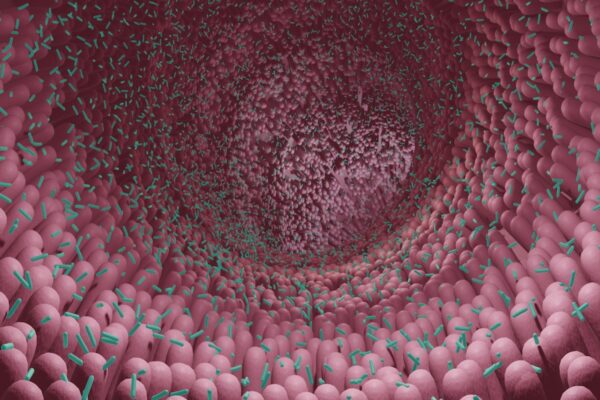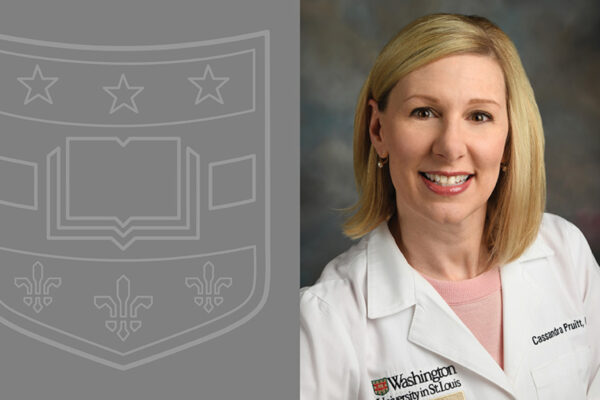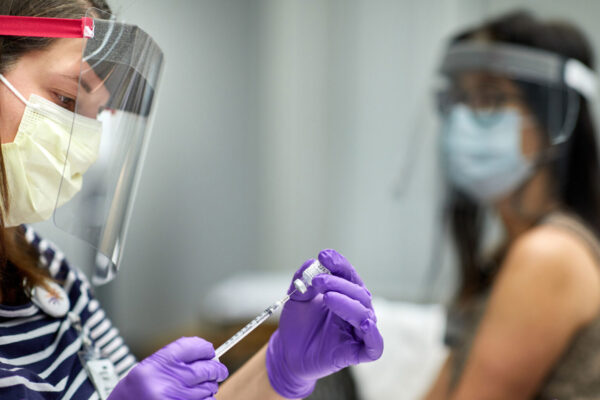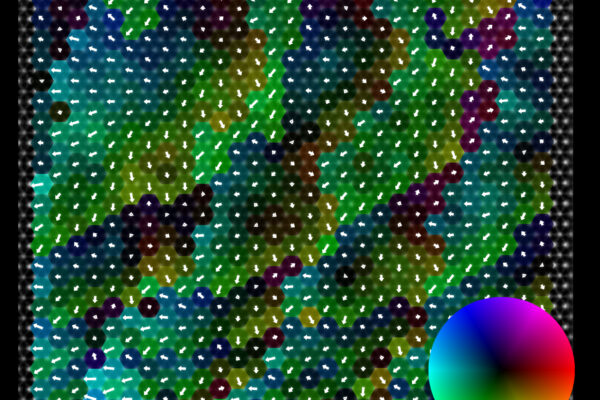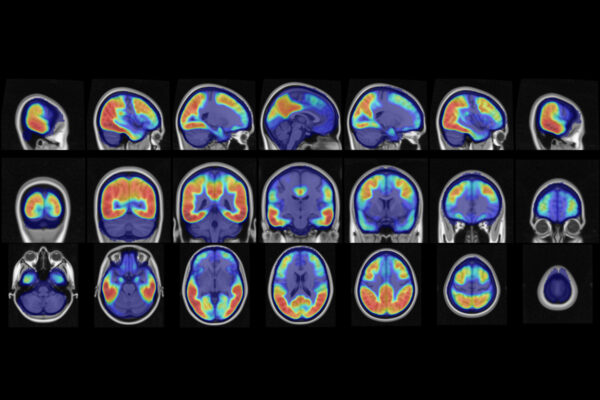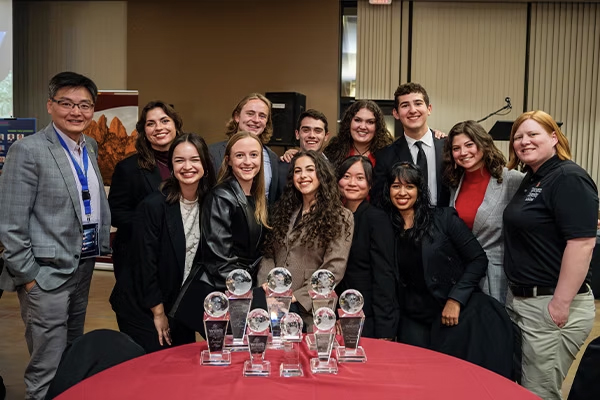Entrepreneurs and innovators honored
The Skandalaris Center for Interdisciplinary Innovation and Entrepreneurship awarded more than $125,000 in funding to WashU startups at its spring awards ceremony.
Gut bacteria boost immune response to fight tumors
Researchers at Washington University School of Medicine in St. Louis have found that a strain of gut bacteria can boost immune responses and enhance cancer immunotherapy to fight sarcoma tumors in mice.
Chemo for glioblastoma enhanced by tapping into cell’s daily rhythms
A study from biologists and clinicians at Washington University in St. Louis reports that glioblastoma cells have built-in circadian rhythms that create better times of day for treatment.
Pruitt named director of academic pediatrics division
Cassandra M. Pruitt, MD, a professor of pediatrics, has been named director of the Division of Academic Pediatrics in the Department of Pediatrics at Washington University School of Medicine in St. Louis.
Repeat COVID-19 vaccinations elicit antibodies that neutralize variants, other viruses
A study by researchers at Washington University School of Medicine in St. Louis has found that repeat vaccination with updated versions of the COVID-19 vaccine promotes the development of antibodies that neutralize a wide range of variants of the virus that causes COVID-19, as well as related coronaviruses.
Shokeen receives International Suffrage Science Award
Monica Shokeen, an associate professor of radiology at the School of Medicine and vice chair for diversity, equity, inclusion and justice at the School of Medicine’s Mallinckrodt Institute of Radiology (MIR), was honored with the International Suffrage Science Award for Life Sciences.
Tiny displacements, giant changes in optical properties
In a study published recently in Advanced Materials, researchers from Washington University and the University of Southern California reveal a new pathway for designing optical materials using the degree of atomic disorder. The researchers anticipate developing crystals that enable advanced infrared imaging in low-light conditions or to enhance medical imaging devices.
Tau protein deposition patterns predict Alzheimer’s severity
Researchers at the School of Medicine have devised a method to gauge Alzheimer’s disease severity by analyzing the patterns of tau pathology in brain scans. The findings could lead to a way to determine how far the disease has progressed in individuals.
Environmental engineering students find success at national contest
Students from Washington University brought home eight awards from the WERC Environmental Design Contest.
Olin Business School honors 2024 distinguished alumni
Olin Business School honored four Koch family members as the 2024 Dean’s Medalists at the school’s annual Distinguished Alumni Awards dinner April 4.
View More Stories

